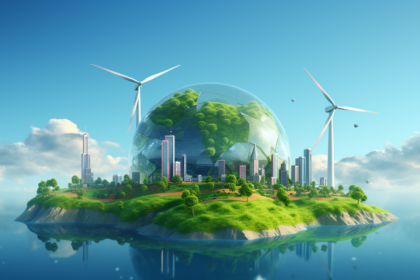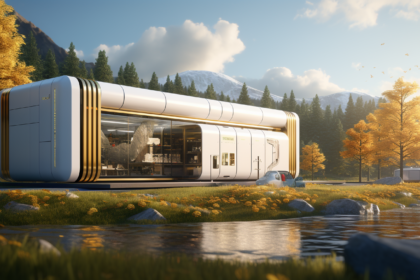A few months ago France made headlines for delaying EU renewable energy negotiations. It was much debated why they did this, but the general consensus was that it came down to nuclear power. Now, they seem to be satisfied.
The EU Negotiation
The negotiations around the Renewable Energy Directive, have reached a compromise that appeases France’s nuclear interests. France wanted to ensure that under the new legislation it could continue using nuclear power and low-carbon hydrogen which derives from nuclear power. This was the reason they previously blocked approval for the agreement in the European Parliament.
The risk that EU climate targets on renewable hydrogen production would disrupt the low-carbon hydrogen made from nuclear sources, was an issue for France. That’s where the conflict appears to lie, the distinction between renewable and low-carbon energy.
Is Nuclear Power Renewable?
Simply put, no. Nuclear power is not renewable because certain elements required for nuclear fission such as uranium are finite materials that need to be mined. While it isn’t renewable it is clean. Nuclear uses a much smaller amount of fuel than coal or gas to generate the same amount of electricity. 1 kg of uranium can generate the same amount of electricity made by 2.7 million kg of coal. This is why it’s cited as a viable alternative to fossil fuels. In an ideal world we’d use 100% renewable energy right away but unfortunately that isn’t possible.
Nuclear power can be continuously generated. Its independence from certain weather conditions position it as a possible gap-filler for the times when there is no wind or sun that can be captured for renewable energy. It’s thought that using low-carbon nuclear power to make up this shortfall is a better option than relying on highly-emitting fossil fuels. Unlike solar or wind power however, there are considerable risks with nuclear power.
The Resolution
The negotiation has reached a resolution with France’s low-carbon prospects secured. This effectively came down to the commission agreeing that low-carbon energy can be part of decarbonisation. It’s a less radical stance than it originally took, when they considered only renewables a legitimate part of this transition, but it’s one that has proven popular, particularly with pro-nuclear countries.
The European Commission wrote in a statement…
“The Commission acknowledges that other sources of fossil-free energy than renewable energy contribute to reaching climate neutrality by 2050 for Member States who decide to rely on such sources of energy.”
Agnès Pannier-Runacher, the French Minister for Energy Transition said…
“This agreement recognises the role of nuclear power in achieving our decarbonisation goals”. Further stating that it “meets France’s expectations”.
Conclusion
Climate negotiations have been ongoing for many years and these discussions will continue to be had for decades to come. It’s important that every country is on board with decarbonisation to some degree and unfortunately it’s not likely that every government in the world will take on renewable energy and climate innovation with open arms.
Compromise, even on the most critically important issues, is part of governance. Understandably however, climate activists say we don’t have time to compromise and must take radical action now. Do you think compromise will be important for the green transition?










